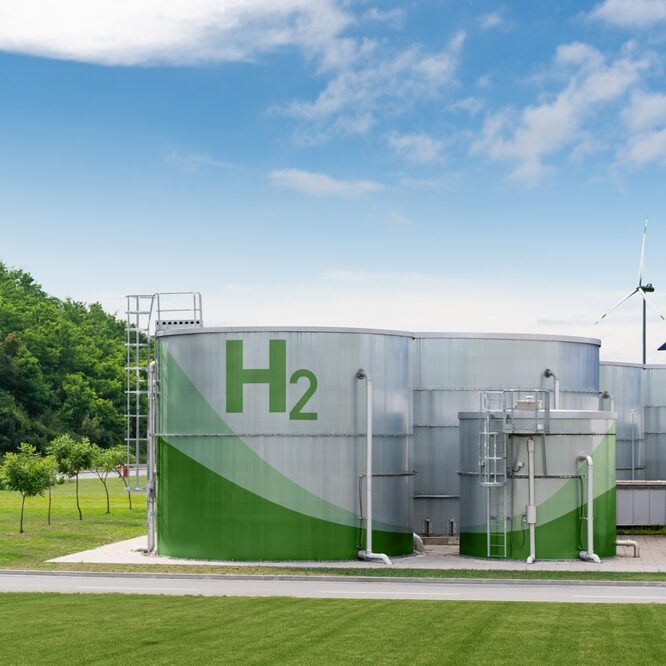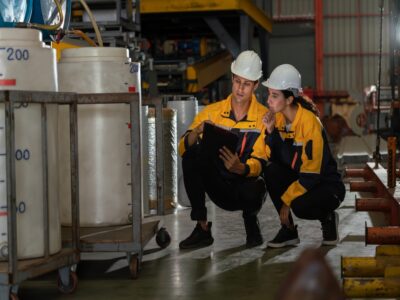
Process Safety Hazards in Green Energy Industries
The green energy sector is rapidly expanding as industries transition toward more sustainable and renewable sources of power. However, with this growth comes a unique set of process safety challenges across various industries, including hydrogen production, bioenergy, and battery energy storage. Each of these sectors carries inherent risks, such as fire, explosion, toxic gas release, and thermal runaway, which require careful management to ensure safe operations. Addressing these hazards is crucial for fostering innovation while protecting people, assets, and the environment.
Hydrogen Industry
The hydrogen industry, both industrial manufacturers and users, faces significant process safety issues due to the highly flammable and explosive nature of hydrogen gas.
Users: Industrial operations often involve the use of hydrogen in refining, chemical processing, and metallurgy, where the risks can be heightened due to large volumes of hydrogen involved. Leaks can form explosive mixtures with air, and due to the small molecular size of hydrogen, even minor leaks can lead to serious incidents if not detected quickly. Additionally, hydrogen has a broad flammability range, meaning it can ignite over a wide concentration, posing a risk in areas where it accumulates during industrial processes.
Manufacturers: In manufacturing processes like electrolysis or steam methane reforming, in addition to the hazards faced by users, high pressures and temperatures are common, further increasing the risks of equipment failure or uncontrolled reactions.
Facilities where hydrogen can be present must navigate challenges in handling, storage, and distribution of hydrogen, as any mishap in these phases can lead to severe fire and explosion consequences, potentially endangering both workers and infrastructure.
Bioenergy
The bioenergy industry involves the production and utilization of energy from biological sources, such as biomass and biogas, each with their own unique process safety challenges. One primary hazard is the risk of fire and explosion from the volatile organic compounds and dust associated with biomass materials. Dust accumulation in processing and storage areas can form combustible dust clouds, which are highly explosive when ignited. Biogas, a byproduct of biomass digestion, contains methane, which can pose a significant explosion risk if not handled properly.
Another critical safety concern in bioenergy production is the handling and processing of large quantities of organic materials that may decompose and release toxic gases. The potential for thermal runaway reactions (self-heating) in anaerobic digestion processes, where excessive heat could lead to uncontrollable fires and explosions, also presents serious risks. Additionally, the complex nature of bioenergy feedstock handling, combined with mechanical failures in processing equipment, can increase the risk of self-heating, fires, and explosions.
Battery Energy Storage
Battery Energy Storage Systems (BESS), particularly those using lithium-ion technology, face critical safety hazards due to the potential for thermal runaway, where battery cells overheat, causing fires and explosions. A single cell malfunction can lead to a chain reaction, quickly escalating to catastrophic failures. This risk is exacerbated in large-scale installations where multiple battery cells are housed in confined spaces, increasing the risk of thermal propagation. Additionally, improper charging, discharging, or mechanical damage to the battery systems can further elevate the risk of electrical fires or explosions.
Moreover, BESS systems are sensitive to environmental conditions such as temperature and humidity, which can affect battery performance and safety. Proper management of battery systems, including effective cooling mechanisms and robust containment, is essential to prevent hazardous incidents. In the event of a fire, traditional firefighting methods may be ineffective, requiring specialized approaches to control and mitigate risks.
How do I manage process safety hazards in the green energy industry?
Stonehouse Process Safety provides expert guidance and laboratory testing and proposes solutions to mitigate the unique hazards faced by companies in the hydrogen, bioenergy, and battery energy storage industries. With specialized hazards identification, risk assessments, and process safety prevention and mitigation consulting support together with our state-of-the-art ISO accredited process safety testing laboratory, Stonehouse helps organizations develop and implement safety management systems tailored to their specific needs and challenges. From fire and explosion prevention and protection strategies in bioenergy and battery storage systems, Stonehouse ensures that companies can operate safely while maintaining compliance with regulatory standards. Our expertise in assessing complex industrial processes helps protect personnel, prevent accidents, and safeguard assets.
Our services include expert consulting, laboratory testing, and training in the specialist fields of dust explosion & fire hazards, electrostatic hazards & processing problems, gas & vapor flammability hazards, Process Hazard Analysis, Process Safety Management, and incident investigation.

Get in touch
To learn more about our expertise and services in dust explosion prevention & mitigation, call us at +1 609 455 0001 or email us at [email protected] today.
We also offer tailored virtual and in-company process safety training programs on Dust Explosions, Static Electricity and HAC (Hazardous Area Classification) and more. Find further information here.
* indicates required fields







